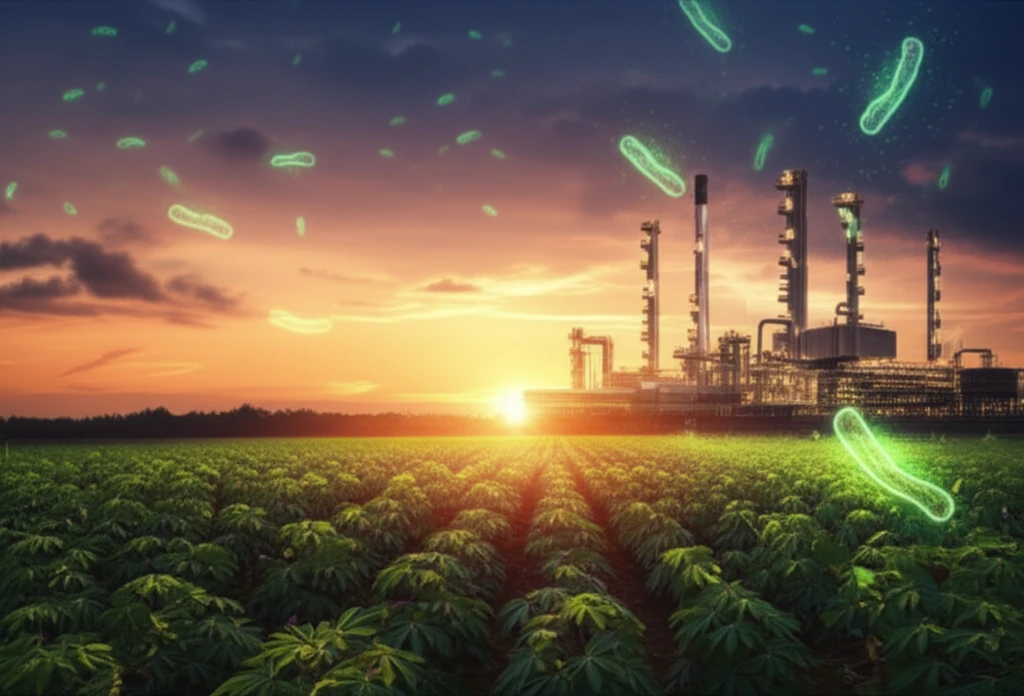
Turning Waste into Fuel: How Biofuel Innovations are Shaping a Sustainable Future
"Explore the latest advancements in biofuel production, from cassava wastewater solutions to optimized microbial oil extraction, paving the way for renewable energy sources."
The search for renewable and sustainable energy sources has become increasingly critical as traditional fossil fuels deplete and environmental concerns grow. Among the promising alternatives, biofuels offer a way to reduce our reliance on finite resources and mitigate the impact of climate change.
Innovative research is exploring diverse methods for biofuel production, ranging from the optimization of microbial processes to the utilization of agricultural and industrial waste. These efforts are not only aimed at creating cleaner energy but also at finding economically viable and environmentally friendly solutions.
This article delves into some of the most recent advancements in biofuel research, highlighting how scientists and engineers are harnessing the power of biology and waste materials to pave the way for a more sustainable energy future. From cassava wastewater to engineered yeasts, the potential for biofuel innovation is vast and transformative.
Cassava Wastewater: A Surprising Source for Biodiesel

Cassava, a staple crop in many parts of the world, generates substantial wastewater during processing. Rather than treating this effluent as a waste product, researchers are investigating its potential as a substrate for biodiesel production. Specifically, they are exploring the use of oleaginous actinomycetes, a type of bacteria known for producing triglycerides, which can be converted into biodiesel.
- Waste Reduction: Converts a problematic waste stream into a valuable resource.
- Cost-Effective: Utilizes a low-cost substrate, potentially reducing the overall cost of biodiesel production.
- Sustainable: Offers a renewable alternative to fossil fuels, decreasing carbon emissions.
The Future of Biofuels: Innovation and Integration
The research highlighted in this article underscores the significant potential of biofuels to contribute to a more sustainable energy future. By exploring unconventional feedstocks like cassava wastewater and optimizing microbial processes, scientists are paving the way for more efficient and environmentally friendly biofuel production.
However, realizing this potential requires continued innovation and integration across various sectors. Collaboration between researchers, industry stakeholders, and policymakers is essential to overcome technical and economic barriers, scale up production, and ensure the widespread adoption of biofuels.
As we move towards a more circular economy, where waste is viewed as a resource, biofuels will undoubtedly play an increasingly important role in meeting our energy needs while minimizing our impact on the planet. The ongoing research and development in this field offer a beacon of hope for a cleaner, more sustainable future.
